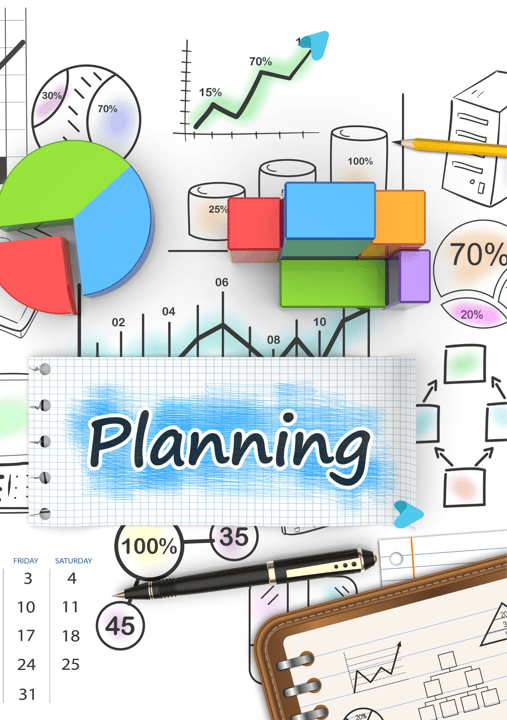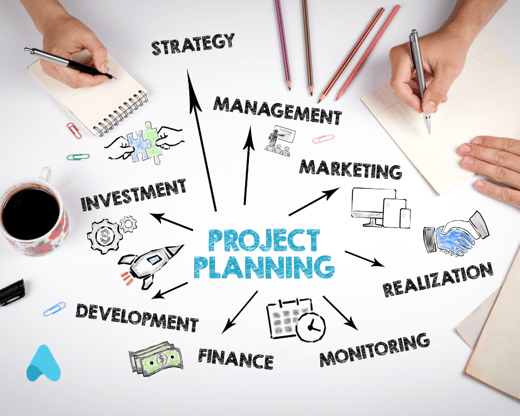Free - consultations
Seize the opportunity and book your free consultation now




Our experts in economics and marketing are ready to take your consultations! Don't hesitate, book now.
Pre-Project Studies
Before embarking on any business project, fundamental studies are crucial to ensure the success of the idea and mitigate potential risks. These studies include:


Market Research and Competitive Analysis:
Assessing the target market size and key trends.
Analyzing potential competitors and understanding their strategies to
identify strengths and weaknesses.
Target Audience Study:
Identifying characteristics, needs, and preferences of potential customers.
Understanding the requirements that your products or services must meet.
Feasibility Study:
Evaluating expected costs and potential revenues for the project.
Analyzing critical analytical points and financial projections to determine project sustainability.
Technical and Operational Study:
Identifying necessary technologies and processes for project execution.
Evaluating infrastructure and technological resources required.
Legal and Regulatory Study:
Ensuring compliance with relevant local legislation and laws.
Obtaining necessary licenses and permits to start and operate the project.
Risk Analysis and Risk Management:
Identifying potential risks and developing strategies to manage them.
Developing plans to deal with potential risks and minimize their impact.








Studies and Plans During Project Implementation
Launching a business project requires thorough preparation and strategic planning to ensure its successful execution and sustained growth. Key studies and plans during this phase typically include:


Execution and Management Plan:
Define project objectives, scope, and deliverables.
Create a detailed project schedule with timelines and milestones.
Allocate resources effectively and assign responsibilities clearly.
Market Research and Competitive Analysis:
Conduct market research to understand target audience preferences, needs, and trends.
Analyze competitors to identify their strengths, weaknesses, and market positioning.
Develop strategies to differentiate your offering and capture market share.
Financial and Revenue Plan:
Estimate startup costs, operational expenses, and revenue projections.
Develop a budget plan and financial forecasts for different stages of the project.
Monitor financial performance regularly and adjust plans based on actual results.
Marketing and Promotion Strategy:
Develop a comprehensive marketing plan to promote products/services.
Determine the marketing channels (digital, print, social media, etc.) suitable for reaching the target audience.
Implement promotional campaigns to increase brand visibility and attract customers.
Risk Management and Contingency Plan:
Identify potential risks and develop mitigation strategies.
Establish a contingency plan to address unforeseen challenges or setbacks.
Continuously monitor risks and adapt strategies to minimize their impact.
Operational and Technical Plan:
Define operational processes and workflows necessary for project execution.
Evaluate technological requirements and infrastructure needed to support operations.
Ensure compliance with legal and regulatory requirements related to business operations.
Performance Monitoring and Evaluation:
Set performance metrics and key performance indicators (KPIs) to measure project success.
Conduct regular evaluations to assess progress towards goals and objectives.
Use data analysis to identify areas for improvement and make informed decisions.
Feedback and Continuous Improvement:
Solicit feedback from stakeholders, customers, and team members.
Implement feedback mechanisms to gather insights for continuous improvement.
Adapt strategies and processes based on feedback to enhance business outcomes..










Studies and Development Plans
During the development phase of a project, comprehensive studies and strategic plans are essential to ensure continuous improvement and sustainable growth. Here are key studies and plans typically undertaken


Market Research and Analysis:
Conduct in-depth market research to understand customer preferences, market trends, and competitive landscape.
Analyze market data to identify new opportunities and potential threats.
Develop strategies to capitalize on market opportunities and mitigate risks.
Product or Service Development Plan:
Define product/service enhancements or innovations based on market research and customer feedback.
Outline the development roadmap, including milestones, timelines, and resource allocation.
Test prototypes or beta versions to gather feedback and refine the product/service.
Financial Feasibility Study:
Evaluate the financial viability of new developments or expansions.
Forecast financial projections, including costs, revenues, and return on investment (ROI).
Assess funding requirements and explore financing options if necessary.
Operational Efficiency Plan:
Streamline operational processes to improve efficiency and reduce costs.
Implement technology solutions or automation tools to optimize workflows.
Train employees on new processes and monitor performance metrics.
Marketing and Growth Strategy:
Develop a comprehensive marketing strategy to promote new products/services.
Identify target markets and segments, and tailor marketing campaigns accordingly.
Utilize digital marketing tactics, such as SEO, social media, and content marketing, to increase visibility and customer engagement.
Risk Management and Contingency Plan:
Identify potential risks associated with new developments or changes.
Develop risk mitigation strategies and contingency plans to address unforeseen challenges.
Monitor risk factors regularly and adjust plans as needed to minimize impact.
Customer Feedback and Satisfaction Studies:
Gather feedback from customers through surveys, reviews, and focus groups.
Analyze customer insights to improve products/services and enhance customer satisfaction.
Implement customer retention strategies to build loyalty and repeat business.
Continuous Improvement and Innovation:
Foster a culture of continuous improvement within the organization.
Encourage innovation through research and development initiatives.










